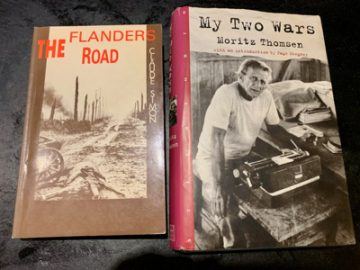by Joan Harvey

On this last Veterans Day, a young friend shared an essay on Facebook by veteran Rory Fanning about his wish that Veterans Day, which celebrates militarism, be changed back to Armistice Day, to celebrate those working for justice and peace. I hadn’t known that Armistice Day, which was established after WWI, had been replaced in 1954 by Veterans Day. Veterans Day, Fanning writes, “instead of looking toward a future of peace, celebrates war ‘heroes’ and encourages others to play the hero themselves. . . going off to kill and be killed in a future war—or one of our government’s current, unending wars.”
My father enlisted the first day America joined WWII, but he almost never talked about his experience. I heard about WWII mostly from my grandparents who were active in the Austrian Resistance, and in my twenties, at the urging of a Native American man I knew, I read book after book on the Holocaust. It is hard not to believe that WW II was one of the few necessary and just wars. But in this war, as in all wars, men were used senselessly, and the experience of the men fighting was often less that of achieving a clear useful goal and more of mismanaged chaos.
I’ve concurrently been reading a biography of Napoleon and listening to War and Peace. Being neither a war nor a history buff, I read descriptions of battle after battle and look at diagrams of landscapes with arrows and dots, with very little real comprehension of the topography and maneuvers and strategies implemented. But it is impossible to come away from both books without the sense of the millions of lives rapidly, brutally, and very often meaninglessly expended, the millions of young men offering themselves up to be butchered or die of disease or cold or starvation. And these descriptions recalled to my mind two great, but not much read, writers who wrote about fighting in WWII, and who gave me the strongest sense of what combat in that war was like. Read more »
